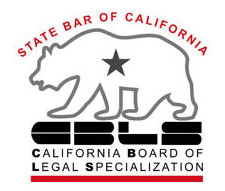Revocable Trusts, Living Trusts, and Family Trusts: What’s the Difference?
 It’s common to see estate planning trusts described as a revocable trust, living trust, or family trust. These three terms describe the same thing. Each of these terms is commonly used, and each term describes a certain aspect of the most common kind of trust used today for estate planning. This article will simply use the word “trust” to talk about each of these trusts; keep in mind that there are many different kinds of trusts, each designed to accomplish different purposes.
It’s common to see estate planning trusts described as a revocable trust, living trust, or family trust. These three terms describe the same thing. Each of these terms is commonly used, and each term describes a certain aspect of the most common kind of trust used today for estate planning. This article will simply use the word “trust” to talk about each of these trusts; keep in mind that there are many different kinds of trusts, each designed to accomplish different purposes.
A trust is revocable when the person who drafted it (the “grantor”) retains the right to rescind the trust. Revocable trusts are considered part of the grantor’s estate. This is useful, because a revocable trust is transparent for tax purposes. The grantor can continue to file tax returns the way she or he always did; there’s no need to file a separate tax return for the trust. Another power that usually goes hand-in-hand with revocability is the ability to amend the trust. Many grantors discover, after a period of time, that they need to make changes to their trusts. Revocable trusts almost always specifically reserve the right to amend the trust to reflect the grantor’s new wishes. Many grantors amend and update their trusts repeatedly; some people amend their trusts more than a dozen times over the course of their lifetimes.
A trust is called a living trust because 1) it is set up during the lifetime of the grantor and 2) the powers of revocation and amendment typically exist only during the lifetime of the grantor. This is contrasted with a testamentary trust, which is a trust that is created following the settlor’s death, usually by a provision in a will.
Ask Dave About
"Ask Dave" is a growing collection of videos that explain estate & business planning terms and concepts in simple terms anyone can understand.Our goal is to empower you to make informed decisions when it comes to your future. Some popular topics are:
- About Probate
- Downside of Probate
- How A Trust Works
- Planning & Wills

Our Practice Areas
- Trusts (both simple and complex)
- Pour-Over Wills
- Powers of Attorney (health care & financial)
- Probate
- Asset Allocation & Trust Subdivision
- Estate Tax Planning & Strategy
- Capital-Gains Tax Planning
 Once the grantor (or last of the grantors, if there are more than one) dies, the trust becomes irrevocable. This means that the trust provisions at the time of the grantor’s death cannot be altered by anyone else. The successor trustee and beneficiaries are bound by the terms of the trust. Irrevocability is what makes a trust work for estate planning purposes. Obviously, if your successor trustee had the ability to make changes to your trust after you were gone, the successor trustee could simply write himself in as sole beneficiary and cut everyone else out. An irrevocable trust provides protection against this possibility.
Once the grantor (or last of the grantors, if there are more than one) dies, the trust becomes irrevocable. This means that the trust provisions at the time of the grantor’s death cannot be altered by anyone else. The successor trustee and beneficiaries are bound by the terms of the trust. Irrevocability is what makes a trust work for estate planning purposes. Obviously, if your successor trustee had the ability to make changes to your trust after you were gone, the successor trustee could simply write himself in as sole beneficiary and cut everyone else out. An irrevocable trust provides protection against this possibility.
A very common companion provision in many trusts is what’s called a “no-contest clause.” What this provision essentially says is that any person who tries to contest the trust–by trying to change the distribution scheme, get a trustee removed, or questioning the validity of the trust itself–will be disinherited. Many no-contest clauses provide that the contesting beneficiary will not receive their original inheritance, and will instead inherit a mere dollar. No contest clauses put some “teeth” into a trust, and help to ensure that the grantor’s wishes are carried out after the grantor has passed away.
Finally, many trusts are called family trusts because the overwhelming majority of trusts are designed to pass assets from one family generation to another. There are many types of family trusts, however, that are not revocable.
Most revocable trusts use the words “revocable,” “living,” or “family” in the title of the trust. It’s common to see “The Smith Family Trust” or “The Larry and Marge Willis Revocable Trust.” Some people use more than one of the terms, or even all three. It’s not necessary to use any of these terms in the title of a trust, however. All that matters is that the terms of the trust provide that the grantor has the power to revoke and amend the trust during his or her lifetime, and that the trust becomes irrevocable upon the grantor’s death.
For help with your estate planning, and to learn the difference between Revocable, Living, and Family Trusts, please call David Morris at (916) 789-9810.

